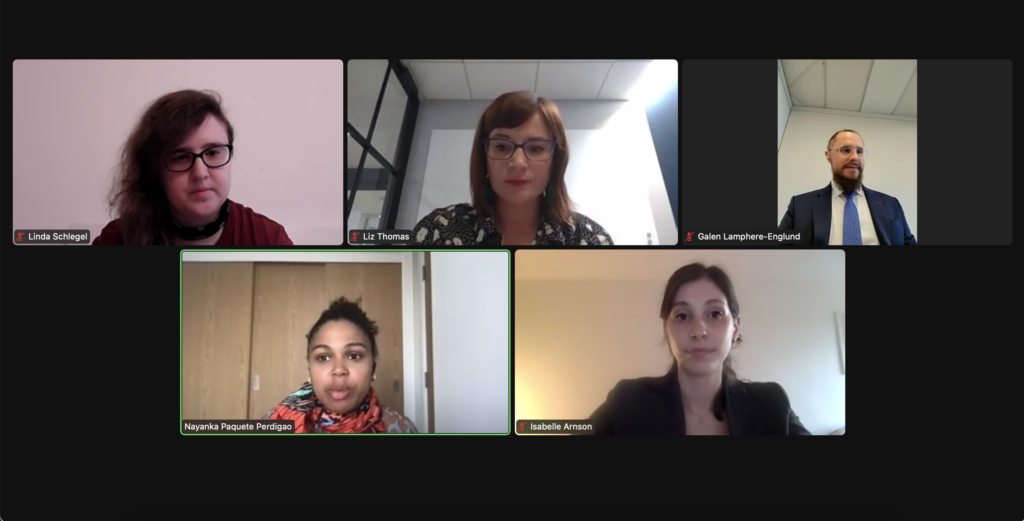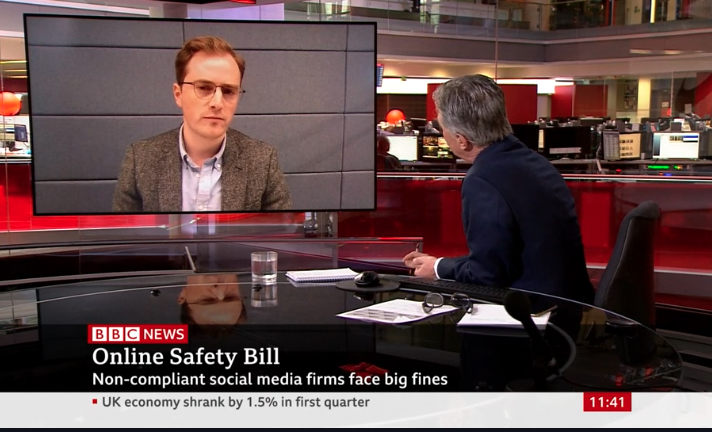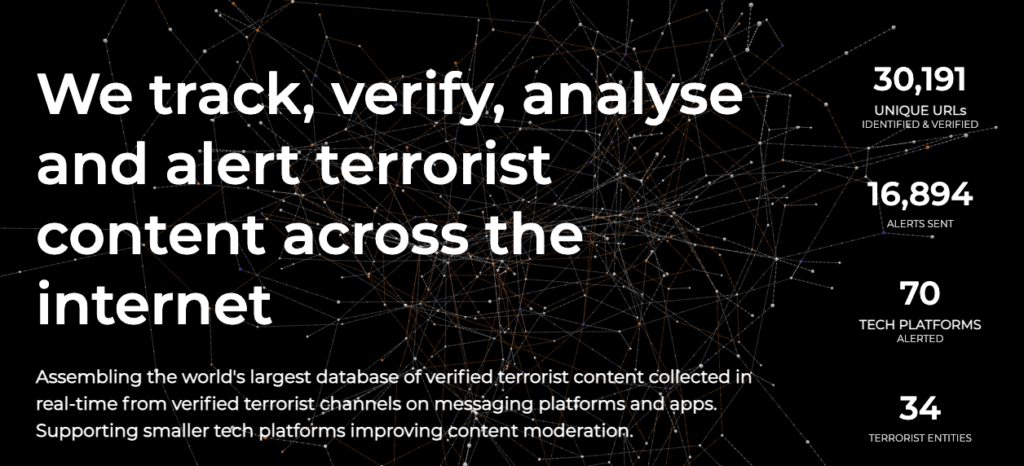Reader's Digest – 1 April 2022
Our weekly review of articles on terrorist and violent extremist use of the internet, counterterrorism, digital rights, and tech policy.
Job Alert!
- We are looking for a Communications Associate to shape and deliver our communications strategy for media and key stakeholders. This is suited for early career candidates with excellent comms skills and an interest in counterterrorism and tech policy. Find out more and apply here.
Webinar Alert!
- Join us on 28 April at 5PM BST for our next TAT-GIFCT webinar, “Audio Content & Detection: Moderation Challenges and Opportunities with Existing Audio Detection Models”. More information about the speakers and the agenda will be shared soon. You can register here!
The Tech Against Terrorism Podcast
- Tune in to Episode 7: "Tech Policy Evolution & The Human Side of Moderating Terrorist Content” here, or wherever you get your podcasts. In Part I of the episode, our host, Anne Craanen, is joined by Charlotte Willner, Executive Director of the Trust & Safety Professional Association, to discuss the challenges over time of developing robust counter terror policies and the dilemmas human moderators face.
- In Part II of the episode, Anne speaks to Jessica Mason, Head of Global Policy and Public Affairs at Clubhouse, and Josh Parecki, Head of Trust and Safety at Zoom, to bring in a tech platform perspective on what informs the development and implementation of their counter terror policies. You can listen here.
Check out the Everything in Moderation Q&A with Jessica Mason from Clubhouse, who answers a number of follow up questions to our podcast episode about how Clubhouse's approach to Trust & Safety has evolved over time.
- So far in the series, we have discussed:
- S2E1: Tackling Taliban Content Online
- S2E2: A Foiled Plot in Texas: The Threat of Violent Fringe Online Networks
- S2E3: Ghuwayran Prison Break: A Propaganda Victory for Islamic State?
- S2E4: Understanding Online Radicalisation
- S2E5: Tracking Violent Far-right Behaviour Online
- S2E6: Tracking Violent Islamist Behaviour Online
- You can now find all Tech Against Terrorism podcast episodes on our Knowledge Sharing Platform.
Tech Against Terrorism Updates
- This week, Tech Against Terrorism’s Head of Policy and Research, Jacob Berntsson, presented at the George Washington University Program on Extremism’s webinar, “The State of Online Terrorist and Extremist Content Removal Policy in the United States.” You can watch a recording here.

- Anne Craanen, Tech Against Terrorism's Senior Research Analyst, presented at the 5th StratCom Seminar of the Club of Venice on hybrid threats and the role of the Terrorist Content Analytics Platform in countering terrorist use of the internet.
- Our Executive Director Adam Hadley spoke to Der Spiegel about our investigations into the Wagner Group and its links to neo-Nazi movements. You can read the article in German here.
Top Stories
- Denmark’s Security and Intelligence Service has designated pandemic-related “anti-governmental extremism” as a terrorist threat.
- The Secretariat of the Organization of Islamic Cooperation has urged the US to re-designate the Houthis as a terrorist group pursuant to the UN Security Council Resolution 2624.
- Russia has blocked access to Google News in the country, the latest major service to be blocked by Russia’s telecom regulator Roskomnadzor.
Tech Against Terrorism has recently updated its analysis of the online regulation landscape in Russia here.
- The Islamic State has published a statement claiming two fighters representing the "Islamic State in Palestine" carried out an attack resulting in the death of two police officers and the injury of others in Israel.
- The Government of Canada has announced the creation of a new expert advisory group on online safety as the next step in developing legislation to address harmful online content, including terrorist content.
Tech Against Terrorism has recently updated its analysis of the online regulation landscape in Canada. You can access the blog post here.
- In nuclear talks between Iran and the US, Iran is insisting on the US’s reversal of its designation of the Islamic Revolutionary Guard Corps (IRGC) before a compromise is reached.
Tech Policy
- House Republicans Target Social Media Harbor Terrorist Groups. A new piece of legislation, the No Publicity for Terrorists Act, is being put forth by US House Republicans. The bill would amend federal law to mandate that social media companies police their platforms and remove any account promoting extremist rhetoric. The account or accounts promoting extremist rhetoric would have to be removed within 24 hours of being discovered or face a 50,000 USD civil fine. The legislation would be aimed primarily at larger social media platforms, however, with Democrats in control of the House, it is unlikely the bill will advance. (Peter Malbin, NewsMax, 29.03.2022).
For any questions, please get in touch via:
contact@techagainstterrorism.org
- News (240)
- Counterterrorism (54)
- Analysis (52)
- Terrorism (39)
- Online Regulation (38)
- Violent Extremist (36)
- Regulation (33)
- Tech Responses (33)
- Europe (31)
- Government Regulation (27)
- Academia (25)
- GIFCT (22)
- UK (22)
- Press Release (21)
- Reports (21)
- US (20)
- USA (19)
- Guides (17)
- Law (16)
- UN (15)
- Asia (11)
- ISIS (11)
- Workshop (11)
- Presentation (10)
- MENA (9)
- Fintech (6)
- Threat Intelligence (5)
- Webinar (5)
- Propaganda (3)
- Region (3)
- Submissions (3)
- Generative AI (1)
- Op-ed (1)


